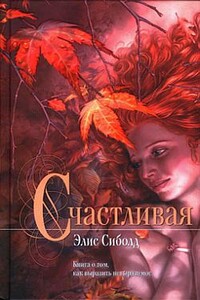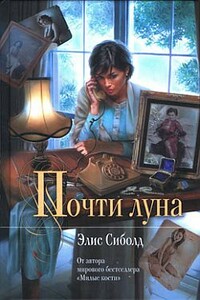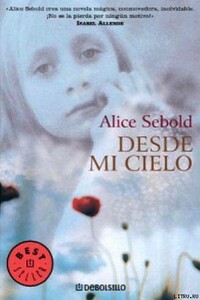The Lovely Bones - страница 85
She climbed down the cliffs after tying her sweater loosely around her waist. Down below she could see nothing but jagged rocks and waves. She was careful, but I watched her feet more than the view she saw – I worried about her slipping.
My mother’s desire to reach those waves, touch her feet to another ocean on the other side of the country, was all she was thinking of – the pure baptismal goal of it. Whoosh and you can start over again. Or was life more like the horrible game in gym that has you running from one side of an enclosed space to another, picking up and setting down wooden blocks without end? She was thinking reach the waves, the waves, the waves, and I was watching her feet navigate the rocks, and when we heard her we did so together – looking up in shock.
It was a baby on the beach.
In among the rocks was a sandy cove, my mother now saw, and crawling across the sand on a blanket was a baby in knitted pink cap and singlet and boots. She was alone on the blanket with a stuffed white toy – my mother thought a lamb.
With their backs to my mother as she descended were a group of adults – very official and frantic-looking – wearing black and navy with cool slants to their hats and boots. Then my wildlife photographer’s eye saw the tripods and silver circles rimmed by wire, which, when a young man moved them left or right, bounced light off or on the baby on her blanket.
My mother started laughing, but only one assistant turned to notice her up among the rocks; everyone else was too busy. This was an ad for something, I imagined, but what? New fresh infant girls to replace your own? As my mother laughed and I watched her face light up, I also saw it fall into strange lines.
She saw the waves behind the girl child and how both beautiful and intoxicating they were – they could sweep up so softly and remove this girl from the beach. All the stylish people could chase after her, but she would drown in a moment – no one, not even a mother who had every nerve attuned to anticipate disaster, could have saved her if the waves leapt up, if life went on as usual and freak accidents peppered a calm shore.
That same week she found work at the Krusoe Winery, in a valley above the bay. She wrote my sister and brother postcards filled with the bright fragments of her life, hoping in a postcard’s limited space she would sound cheery.
On her days off, she would walk down the streets of Sausalito or Santa Rosa – tiny upscale towns where everyone was a stranger – and, no matter how hard she tried to focus on the hopeful unfamiliar, when she walked inside a gift shop or café the four walls around her would begin to breathe like a lung. She would feel it then, creeping up the side of her calves and into her gut, the onslaught, the grief coming, the tears like a small relentless army approaching the front lines of her eyes, and she would breathe in, taking a large gulp of air to try to stop herself from crying in a public place. She asked for coffee and toast in a restaurant and buttered it with tears. She went into a flower shop and asked for daffodils, and when there were none she felt robbed. It was such a small wish – a bright yellow flower.
The first impromptu memorial in the cornfield opened in my father the need for more. Yearly now, he organized a memorial, to which fewer and fewer neighbors and friends came. There were the regulars, like Ruth, and the Gilberts, but more and more the group was filled out by kids from the high school who, as time went by, knew only my name and even that only as a large dark rumor invoked as a warning to any student that might prove too much a loner. Especially girls.
Each time my name was said by these strangers it felt like a pinprick. It was not the pleasant sensation that it could be when my father said it or when Ruth wrote it in her journal. It was the sensation of being simultaneously resurrected and buried within the same breath. As if in an economics class I had been ushered over into a column of transmutable commodities: the Murdered. A few teachers, like Mr. Botte, remembered me as a real girl. Sometimes on his lunch hour he would go and sit in his red Fiat and think about the daughter he had lost to leukemia. In the distance, out past his window, the cornfield loomed. Often, he would say a prayer for me.







